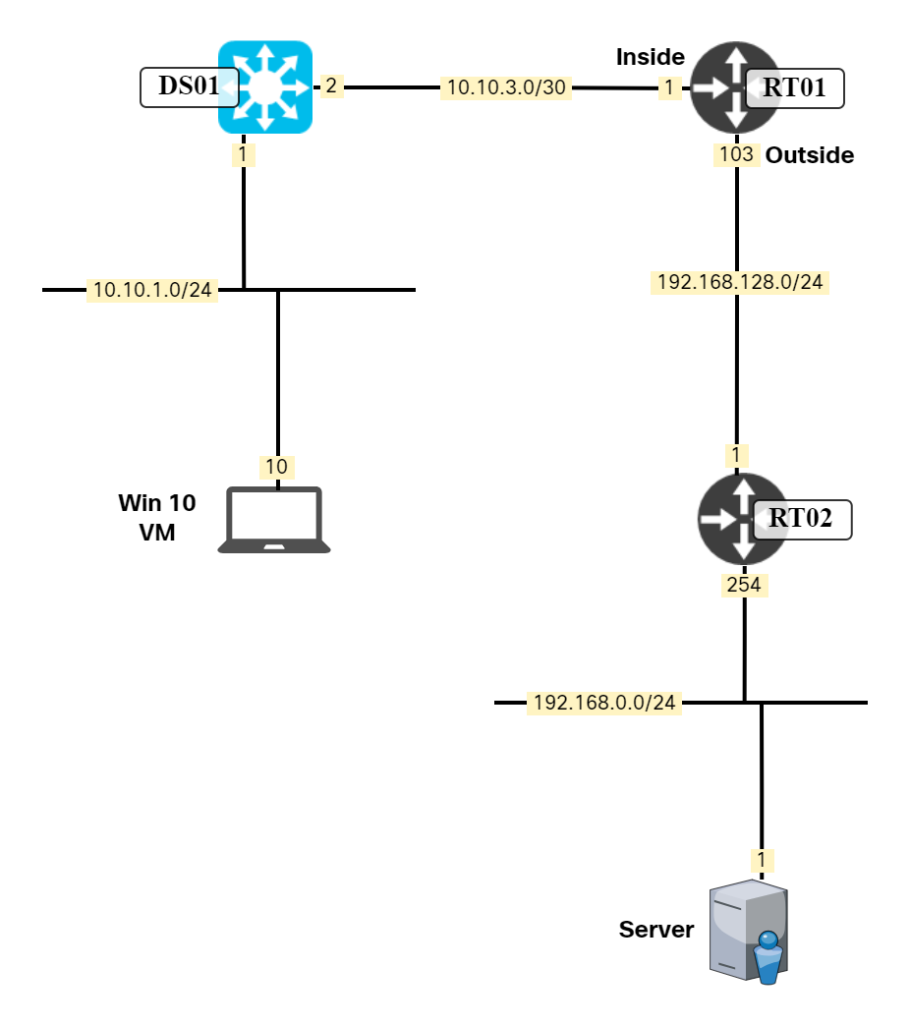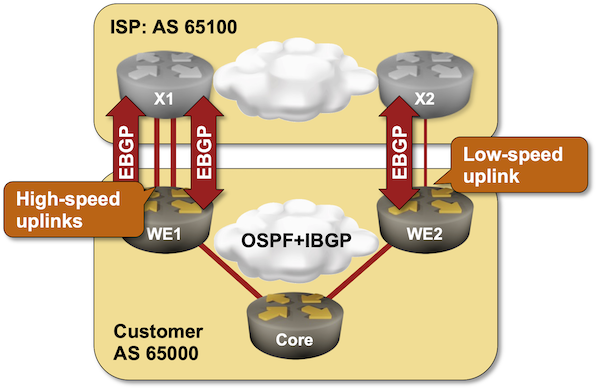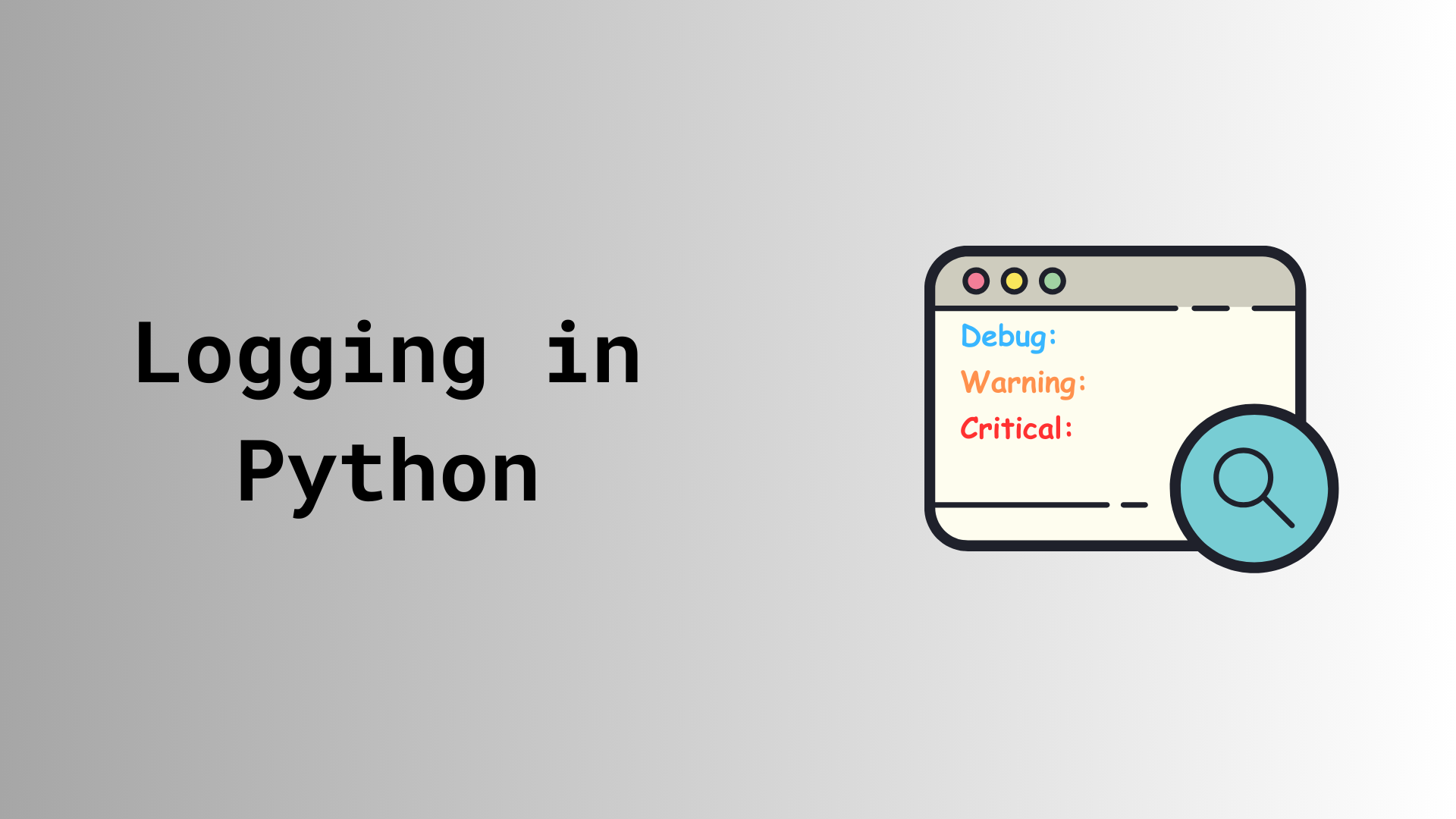A GPU Upgrade For “Leonardo” Supercomputer But Not A Budget Upgrade
Neither scientific progress nor the budgetary process can wait for compute engine and interconnect roadmaps. …
A GPU Upgrade For “Leonardo” Supercomputer But Not A Budget Upgrade was written by Timothy Prickett Morgan at The Next Platform.
NB496: Nokia’s Enterprise Data Center Intentions; Are AI ChatBots Worth the Nuclear Waste?
Take a Network Break! This week we discuss Microsoft’s proposed deal to buy power from the Three Mile Island nuclear plant, new APs and switches from Juniper Networks, and T-Mobile landing a customer driven by the network slicing capabilities of 5G. China disbands a botnet, Nokia takes on data center switch giants with a new... Read more »Start auditing and controlling the AI models accessing your content
Site owners have lacked the ability to determine how AI services use their content for training or other purposes. Today, Cloudflare is releasing a set of tools to make it easy for site owners, creators, and publishers to take back control over how their content is made available to AI-related bots and crawlers. All Cloudflare customers can now audit and control how AI models access the content on their site.
This launch starts with a detailed analytics view of the AI services that crawl your site and the specific content they access. Customers can review activity by AI provider, by type of bot, and which sections of their site are most popular. This data is available to every site on Cloudflare and does not require any configuration.
We expect that this new level of visibility will prompt teams to make a decision about their exposure to AI crawlers. To help give them time to make that decision, Cloudflare now provides a one-click option in our dashboard to immediately block any AI crawlers from accessing any site. Teams can then use this “pause” to decide if they want to allow specific AI providers or types of bots to proceed. Once that Continue reading
Introducing Ephemeral IDs: a new tool for fraud detection
In the early days of the Internet, a single IP address was a reliable indicator of a single user. However, today’s Internet is more complex. Shared IP addresses are now common, with users connecting via mobile IP address pools, VPNs, or behind CGNAT (Carrier Grade Network Address Translation). This makes relying on IP addresses alone a weak method to combat modern threats like automated attacks and fraudulent activity. Additionally, many Internet users have no option but to use an IP address which they don’t have sole control over, and as such, should not be penalized for that.
At Cloudflare, we are solving this complexity with Turnstile, our CAPTCHA alternative. And now, we’re taking the next step in advancing security with Ephemeral IDs, a new feature that generates a unique short-lived ID, without relying on any network-level information.
When a website visitor interacts with Turnstile, we now calculate an Ephemeral ID that can link behavior to a specific client instead of an IP address. This means that even when attackers rotate through large pools of IP addresses, we can still identify and block malicious actions. For example, in attacks like credential stuffing or account signups, where fraudsters attempt to disguise Continue reading
Network performance update: Birthday Week 2024
When it comes to the Internet, everyone wants to be the fastest. At Cloudflare, we’re no different. We want to be the fastest network in the world, and are constantly working towards that goal. Since June 2021, we’ve been measuring and ranking our network performance against the top global networks. We use this data to improve our performance, and to share the results of those initiatives.
In this post, we’re going to share with you how our network performance has changed since our last post in March 2024, and discuss the tools and processes we are using to assess network performance.
Digging into the data
Cloudflare has been measuring network performance across these top networks from the top 1,000 ISPs by estimated population (according to the Asia Pacific Network Information Centre (APNIC)), and optimizing our network for ISPs and countries where we see opportunities to improve. For performance benchmarking, we look at TCP connection time. This is the time it takes an end user to connect to the website or endpoint they are trying to reach. We chose this metric to show how our network helps make your websites faster by serving your traffic where Continue reading
Making zone management more efficient with batch DNS record updates
Customers that use Cloudflare to manage their DNS often need to create a whole batch of records, enable proxying on many records, update many records to point to a new target at the same time, or even delete all of their records. Historically, customers had to resort to bespoke scripts to make these changes, which came with their own set of issues. In response to customer demand, we are excited to announce support for batched API calls to the DNS records API starting today. This lets customers make large changes to their zones much more efficiently than before. Whether sending a POST, PUT, PATCH or DELETE, users can now execute these four different HTTP methods, and multiple HTTP requests all at the same time.
Efficient zone management matters
DNS records are an essential part of most web applications and websites, and they serve many different purposes. The most common use case for a DNS record is to have a hostname point to an IPv4 address, this is called an A record:
example.com 59 IN A 198.51.100.0
blog.example.com 59 IN A 198.51.100.1
ask.example.com 59 IN A 198.51. Continue reading
Egress Peer Engineering: basics
Egress Peer Engineering extends regular BGP policies to provide more flexibility.
Why use Egress Peer Engineering
When a network operator has multiple external connections, such as IP transit, private peerings or Internet Exchange (IXP), there is often a need to …
NAT Overload Towards Specific Host
This is a quick post on how to perform NAT overload (PAT) towards a specific host only. I have an inside network of 10.10.1.0/24. I need a host in this network to reach the host 192.168.0.1. They don’t have direct connectivity so I need to PAT it behind the router which has an IP of 192.168.128.103. I don’t want to PAT all the traffic from 10.10.1.0/24, though, only towards this specific host. There are hosts in 192.168.128.0/24 that the VM should access using its original source. The network is shown in the diagram below:

First, I’ll define my inside and outside interface:
RT01(config)#int gi0/0 RT01(config-if)#ip nat inside RT01(config-if)#int gi0/1 RT01(config-if)#ip nat outside
Then I’m going to create the ACL that matches on traffic from the 10.10.1.0/24 network to the host 192.168.0.1:
RT01(config)#ip access-list extended NAT-SRC-10.10.2.0/24 RT01(config-ext-nacl)#permit ip 10.10.2.0 0.0.255.255 host 192.168.0.1
Then, I’ll configure the NAT statement to match on the ACL and do an overload to interface Gi0/1:
RT01(config)#ip nat inside source list NAT-SRC-10.10.2. Continue reading
IBGP Load Balancing with BGP Link Bandwidth
In the previous BGP load balancing lab exercise, I described the BGP Link Bandwidth attribute and how you can use it on EBGP sessions. This lab moves the unequal-cost load balancing into your network; we’ll use the BGP Link Bandwidth attribute on IBGP sessions.

Cloudflare’s 2024 Annual Founders’ Letter
This week Cloudflare will celebrate the fourteenth anniversary of our launch. We think of it as our birthday. As is our tradition ever since our first anniversary, we use our Birthday Week each year to launch new products that we think of as gifts back to the Internet. For the last five years, we also take this time to write our annual Founders’ Letter reflecting on our business and the state of the Internet. This year is no different.
That said, one thing that is different is you may have noticed we've actually had fewer public innovation weeks over the last year than usual. That's been because a couple of incidents nearly a year ago caused us to focus on improving our internal systems over releasing new features. We're incredibly proud of our team's focus to make security, resilience, and reliability the top priorities for the last year. Today, Cloudflare's underlying platform, and the products that run on top of it, are significantly more robust than ever before.

With that work largely complete, and our platform in its strongest shape ever, we plan to pick back up the usual cadence of new product launches that we're known for. This Continue reading
Logging in Python

How many times have you found yourself staring at your screen, surrounded by a sea of hastily added print statements, thinking "There's got to be a better way"? If you're like me, the answer is probably "more times than I'd care to admit."
Sick of finding myself in this situation more often than I'd like, I decided to take action. Python's default logging module is powerful, but it just didn't cut it for my needs. I was looking for something more.
Why Logging Matters
Before we dive in, let's look at why logging is crucial:
- Debugging: Logs provide a trail of breadcrumbs to track down issues.
- Monitoring: They help you understand your application's behavior.
- Auditing: Logs can serve as a record of important events or actions.
- Performance Tracking: You can use logs to identify bottlenecks and optimize your code.
Introducing PyLogger
With these benefits in mind, I set out to build a custom logging class that would meet all my requirements. The result is PyLogger, a Python logging class that aims to make logging both powerful and user-friendly.
Key Features
Below are some of the key features that make pylogger appealing:
- Flexible Continue reading
IPv6: Instructions for Use
Retirement obviously does not sit well with my friend Tiziano Tofoni; the English version of his IPv6 book just came out.
It is a bit sad, though, that we still need “how to use IPv6” books when the protocol is old enough to enjoy a nice glass of whiskey (in the US) trying to drown its sorrow at its slow adoption.
HN750: Under the Hood Of Palo Alto Networks Prisma Access Browser (Sponsored)
On today’s Heavy Networking, we discuss enterprise browsers with sponsor Palo Alto Networks. Most end users do the majority of their work in the browser these days. At the same time, more threats are coming in via the Web and Web-based apps. Palo Alto Networks recently launched its Prisma Access browser, a Chromium-based browser designed... Read more »Creating a Simple GUI Application with Python Tkinter

A few years ago, I used a simple application called 'TypeItIn'. It kept a small GUI window open with some buttons and labels. You could configure each label with your own text. If you wanted to type one of these texts into a window, all you needed to do was click on the label, and it would start typing the text into whatever window you opened. It was such a time-saver, especially if you had multiple texts that you often used.
Fast forward a few years, I really needed such a tool and then realized I knew a bit of Python, so I should be able to create the same functionality using Python. So, in this blog post, let's go through how you can create a simple GUI application with just a few lines of code.
What Is Tkinter?
Tkinter is the standard GUI toolkit for Python, providing a fast and easy way to create simple GUI applications. It is built into Python, so there’s no need to install anything separately if you already have Python.
Tkinter is widely used due to its simplicity and the vast availability of widgets like buttons, menus, and text fields, which help Continue reading
AI Powerhouses Choose The Nuclear Option
When you need to provide electricity to power and cool 100,000 accelerators, or maybe even 1 million of them in a few years, in a single location to run an AI model, you have to start thinking about the unthinkable if you also want to use carbon-free juice to power your AI ambitions. …
AI Powerhouses Choose The Nuclear Option was written by Timothy Prickett Morgan at The Next Platform.
TNO003: DevOps, NetOps, and Batman – Part 1
Do you know what DevOps is? Really? And how well does it fit traditional NetOps? Host Scott Robohn and guest Tom McGonagle explore ways to apply DevOps to Network Engineering and Operations. They review the seven DevOps practices and Tom’s proposed adaptations of DevOps under the banner of GitNops. This is the first part of... Read more »Hedge 244: Networks for AI
What are the requirements for running AI workloads over a data center fabric? Why is InfiniBand so popular for building AI networks? What about Ethernet for AI? Jeff Tantsura joins Tom Ammon and Russ White to discuss networks for AI workloads.
Removing uncertainty through “what-if” capacity planning
Infrastructure planning for a network serving more than 81 million requests at peak and which is globally distributed across more than 330 cities in 120+ countries is complex. The capacity planning team at Cloudflare ensures there is enough capacity in place all over the world so that our customers have one less thing to worry about - our infrastructure, which should just work. Through our processes, the team puts careful consideration into “what-ifs”. What if something unexpected happens and one of our data centers fails? What if one of our largest customers triples, or quadruples their request count? Across a gamut of scenarios like these, the team works to understand where traffic will be served from and how the Cloudflare customer experience may change.
This blog post gives a look behind the curtain of how these scenarios are modeled at Cloudflare, and why it's so critical for our customers.
Scenario planning and our customers
Cloudflare customers rely on the data centers that Cloudflare has deployed all over the world, placing us within 50 ms of approximately 95% of the Internet-connected population globally. But round-trip time to our end users means little if those data centers don’t have the capacity Continue reading